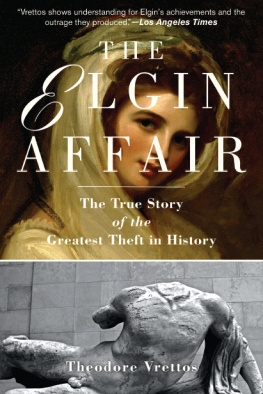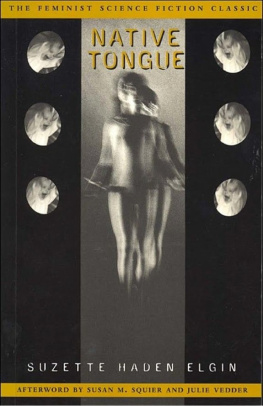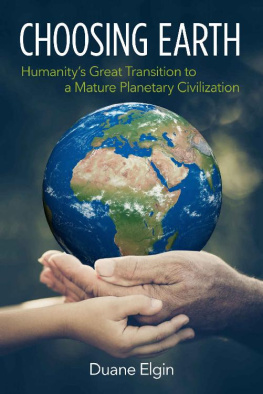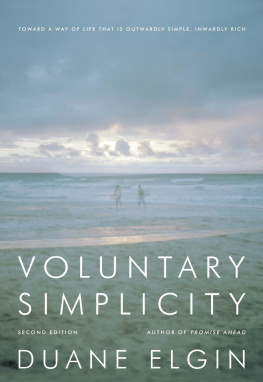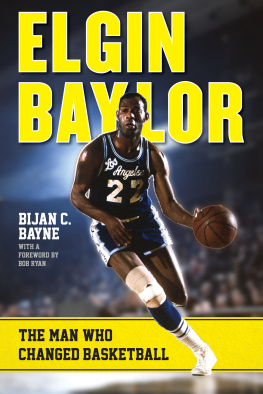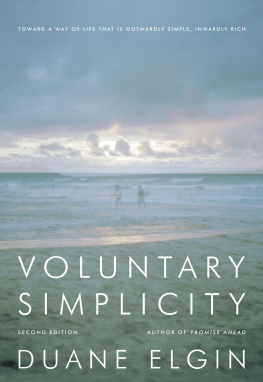All rights reserved. No part of this book may be reproduced in any form by any electronic or mechanical means (including photocopying, recording, or information storage and retrieval) without permission in writing from the publisher.
This book was set in StoneSerif by Westchester Book Composition. Printed and bound in the United States of America.
Names: Elgin, Catherine Z., 1948 author.
Title: True enough / Catherine Z. Elgin.
Description: Cambridge, MA : MIT Press, [2017] | Includes bibliographical references and index.
Identifiers: LCCN 2016057890 | ISBN 9780262036535 (hardcover : alk. paper)
Subjects: LCSH: Knowledge, Theory of. | Comprehension. | SciencePhilosophy. | ArtsPhilosophy.
Classification: LCC BD161 .E445 2017 | DDC 121/.6dc23 LC record available at https://lccn.loc.gov/2016057890
For Jim, Sam, and Gareth.
And in memory of Jonathan Adler.
Thou wert my guide, philosopher, and friend.
Acknowledgments
In writing True Enough I amassed a multitude of debts. The first and deepest is to Jonathan Adler. Since our days in graduate school, he was my dearest friend, sharpest critic, most supportive ally. Although the book is littered with acknowledgments for his suggestions, objections, elaborations, and corrections, they do not begin to do justice to his contributions to my work. His influence is pervasive. The book would have been better if he had lived longer.
Many other friends, colleagues, and students also helped to improve the work, refining my arguments and saving me from a host of embarrassing gaffes. For their insights and advice I thank (in no particular order) Kenneth Walden, Remei Capdevila, Samuel Elgin, Mary Kate McGowan, Kareem Khalifa, Nancy Nersessian, Elizabeth Camp, Stephen Grimm, John Greco, Roman Frigg, James Nguyen, Bas van Fraassen, Georg Brun, James van Cleve, Sabine Ammon, Zachary Barber, Insa Lawler, Duncan Pritchard, Heather Battaly, Judith Jarvis Thomson, A. R. Mudd, Michael Hannon, John Kulvicki, Wayne Riggs, Stephen Yablo, Joseph Cruz, Selim Berker, Robert Schwartz, Amlie Rorty, Jamie Tappenden, Jonathan Mattheson, Alvin Goldman, Sanford Goldberg, Geordie McComb, Michael Stuart, Mauricio Surez, and a gaggle of anonymous referees. I am sure there are others whom I have forgotten to list. For that I apologize. I am grateful to you all.
I road tested material a variety of venues. I am grateful for the comments and criticisms I received. Among the conferences where I presented drafts of different chapters are: the 2003 Rutgers Epistemology Conference, where Ernest Sosas challenge got the whole thing started; the 2008 Pacific Division meeting of the American Philosophical Association, where worries raised by Jonathan Kvanvig, Michael Strevens, and Duncan Pritchard spurred me on; the 2013 Spencer Foundation Conference on Virtue and Education at Stanford University, where A. R. Mudds critique was invaluable; the 2014 Bled Epistemology Conference; the 36th International Wittgenstein Society Symposium; the 2014 meeting of the Eastern Division of the American Philosophical Association; the 2014 meeting of the Society for Philosophy of Science in Practice; the Sawyer Seminar on Expertise and Disagreement at Northwestern University; the 2015 meeting of the British Society for Aesthetics; the 2015 meeting of the Northern New England Philosophy Association; the 2016 Dubrovnik Philosophy of Science Conference; and the capstone conferences for the John Templeton Foundation projects on Intellectual Humility and on Varieties of Understanding. I presented draft material at the University of North Florida, the University of East Anglia, the University of Leeds, Nancy 2 University, the London School of Economics, Dartmouth, the University of Konstanz, Complutense University of Madrid, the University of Bern, Loyola Marymount University, the University of Basque Country, as well as at Reed, Bryn Mawr, Wellesley, Middlebury, Tufts, Bucknell, St. Louis University, the University of Miami, the University of Vermont, University College London, Kings College London, the University of Kent, New York University, UC Davis, the University of Cape Town, and the University of Manchester. Contributions from audience members in all of these places helped me to hone my position.
A number of institutions supported my work financially. I received a grant from the National Endowment for the Humanities in 2004 and one from the Spencer Foundation in 2009. In 2011 I was a fellow at the Susan and Donald Newhouse Center for the Humanities at Wellesley College. A substantial portion of the work was supported by awards from the John Templeton Foundation through the Varieties of Understanding Project at Fordham University and the Intellectual Humility Project at St. Louis University. The opinions expressed in this publication are those of the author and do not necessarily reflect the views of the Varieties of Understanding Project, Fordham University, the Intellectual Humility Project, St Louis University, or the John Templeton Foundation. Nor, of course, do they reflect the views of the Newhouse Center, the NEH, or the Spencer Foundation. Whether or not they share my views, I am very grateful to these institutions for their support.
Earlier versions of sections of the book have appeared in journals and anthologies: Chapter 2 builds on True Enough, Philosophical Issues 14 (2004): 113131. Part of chapter 3 first appeared as From Knowledge to Understanding, in Epistemology Futures, ed. Stephen Hetherington (Oxford: Clarendon Press, 2006), 199215. Another part appeared as Is Understanding Factive? in Epistemic Value, ed. Duncan Pritchard, Alan Miller, and Adrian Haddock (Oxford: Oxford University Press, 2009), 322330. A portion of chapter 4 was published as Non-Foundationalist Epistemology: Holism, Coherence, and Tenability, in Contemporary Debates in Epistemology, ed. Mattias Steup and Ernest Sosa (Malden MA: Blackwell, 2005), 156167. I am grateful for James van Cleves comments, which were published along with my paper. Part of chapter 6 was first published as Science, Ethics, and Education, Theory and Research in Education 9 (2011): 251263. A section of chapter 7 first appeared as Keeping Things in Perspective, Philosophical Studies 150 (2010): 439447. Part of chapter 9 was published as Making Manifest: Exemplification in the Sciences and the Arts, Principia 15 (2011): 399413. Another part was published as Exemplification and Understanding, in Explaining Understanding: New Essays in Epistemology and the Philosophy of Science, ed. Stephen Grimm, Christoph Baumberger, and Sabine Ammon (New York: Routledge, 2016), 7691. A version of chapter 10 was first published in French as LExemplification et la Dance, in Philosophie de la Dance, ed. Julia Beauquel and Roger Pouivet (Rennes: Presses Universitaire de Rennes, 2010), 8198. A section of chapter 12 was published as Telling Instances, in Beyond Mimesis and Convention: Representation in Art and Science, ed. Roman Frigg and Matthew Hunter (Dordrecht: Springer, 2010), 117 ( Springer Science + Business Media B.V. 2010). A section of chapter 14 was published in Spanish as Ignorancia, Error y el Avance de la Comprensin, in



